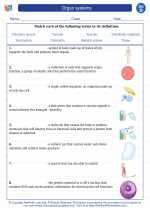Reproductive Glands
Reproductive glands are a key part of the human reproductive system. They are responsible for producing and releasing sex hormones and gametes (sperm in males and eggs in females) that are necessary for sexual reproduction.
Male Reproductive Glands
In males, the primary reproductive glands are the testes. The testes are responsible for producing sperm and the hormone testosterone. Sperm is produced in the seminiferous tubules within the testes, while testosterone is produced in the Leydig cells. These hormones and sperm are essential for male fertility and the development of male secondary sexual characteristics.
Female Reproductive Glands
In females, the primary reproductive glands are the ovaries. The ovaries are responsible for producing eggs (or ova) and the hormones estrogen and progesterone. The eggs are released during the menstrual cycle in a process called ovulation. Estrogen and progesterone are important for regulating the menstrual cycle, maintaining pregnancy, and developing female secondary sexual characteristics.
Study Guide
- What are the primary reproductive glands in males and females?
- What is produced by the testes in males, and what is its function?
- What is produced by the ovaries in females, and what is their function?
- What are the male gametes, and where are they produced?
- What are the female gametes, and where are they produced?
- What are the hormones produced by the male reproductive glands, and what are their functions?
- What are the hormones produced by the female reproductive glands, and what are their functions?
◂Science Worksheets and Study Guides Fourth Grade. Organ systems

 Worksheet/Answer key
Worksheet/Answer key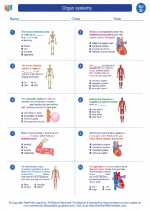
 Worksheet/Answer key
Worksheet/Answer key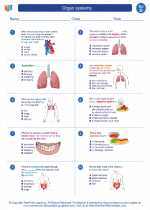
 Worksheet/Answer key
Worksheet/Answer key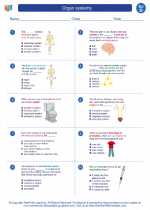
 Vocabulary/Answer key
Vocabulary/Answer key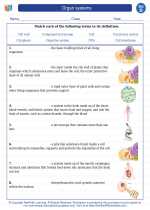
 Vocabulary/Answer key
Vocabulary/Answer key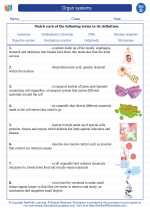
 Vocabulary/Answer key
Vocabulary/Answer key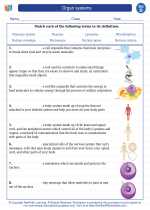
 Vocabulary/Answer key
Vocabulary/Answer key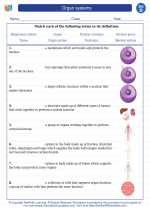
 Vocabulary/Answer key
Vocabulary/Answer key